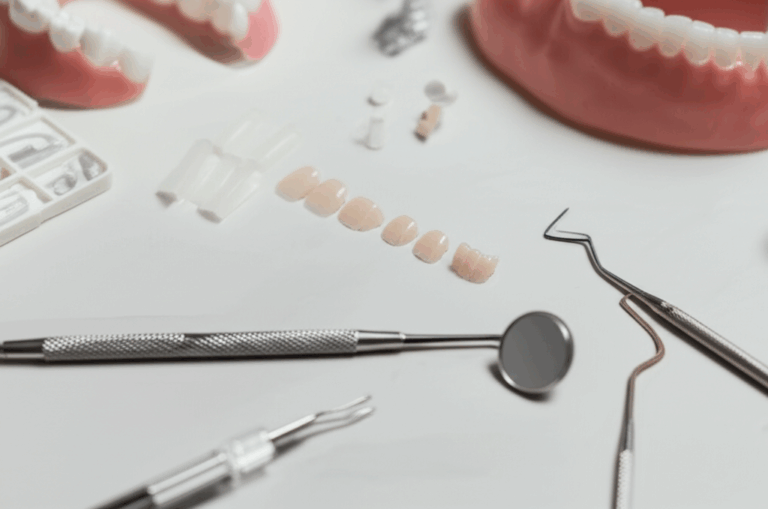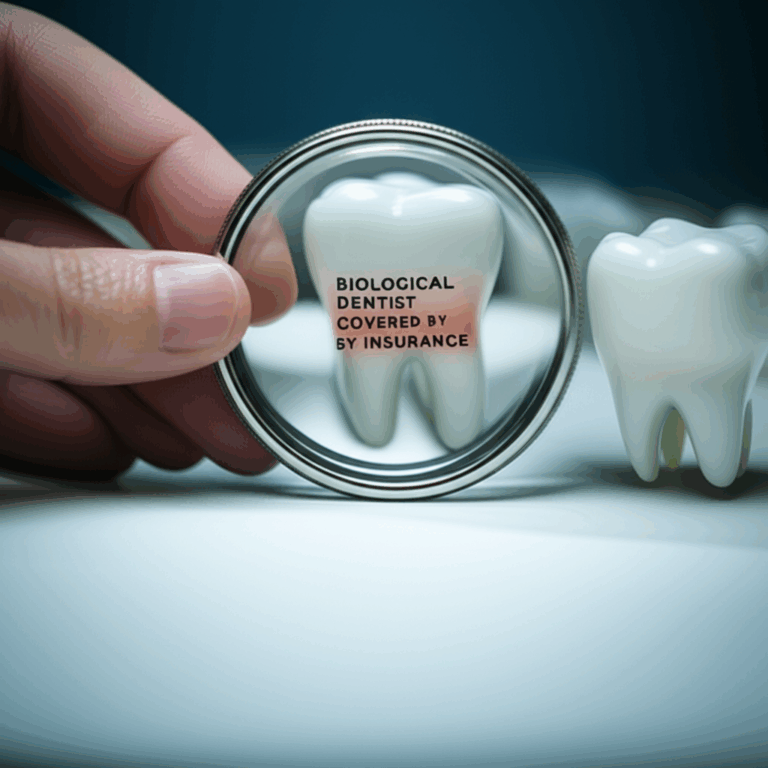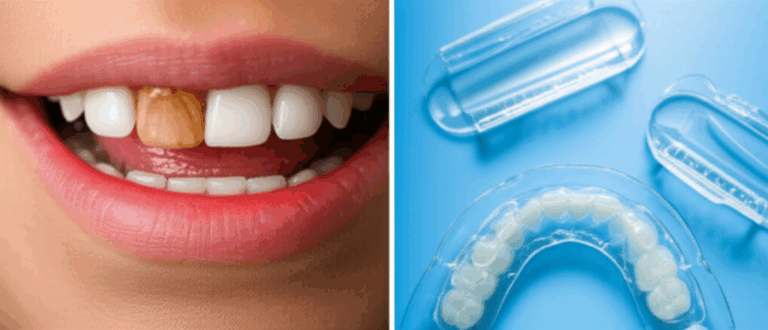
How to Register with a Dentist: A Step‑by‑Step Guide From My Own Experience
Introduction: Why I Finally Registered With a Dentist
I put off registering with a dentist for years. I brushed, flossed, hoped for the best, and told myself I’d sign up when life slowed down. Life never slowed down. A nagging toothache finally pushed me into action. I learned two things. Getting registered isn’t hard once you know the steps. Waiting makes everything harder and sometimes costs more.
In this guide I’ll walk you through exactly how I registered with a new dental practice. I’ll share the questions I asked, what I brought, and how I figured out NHS versus private options. I’ll also give you ideas if you can’t find a practice accepting new patients, because that’s a real problem in some places. Think of this as a simple roadmap with real-world shortcuts.
Table of Contents
Your Dental Care Options: NHS, Private, or Mixed
You don’t need to be a dental expert to pick what fits. You just need a clear view of your options.
NHS Dentistry (UK‑centric, adapt for your region)
NHS dentistry is about making sure you get the basic treatment you really need. It costs less and you know what you’re paying for. You’ll see set price bands and things like check-ups, fillings, taking out teeth, root canals, and crowns if you need them. But finding a spot is tough in some areas—lots of adults say they can’t get in at a local NHS dentist. You might have to wait weeks or more.
What’s good about NHS dentistry:
- Prices are clear for necessary treatment
- Good safety checks and rules
- Standards are steady
Things I found hard:
- Finding a practice with room
- Waiting longer for normal visits
Tip if you’re in England: Check the NHS “Find a dentist” tool. If a practice says no NHS spots, call anyway. Sometimes they open spots without saying or add you to a wait list.
Private Dentistry
Private dentists do everything from check-ups to teeth whitening. You can often get in quicker and pick time slots that suit you. You can also get extras like teeth whitening, veneers, special crowns, clear braces, and implants. Prices change by place and dentist. Many private places show prices, offer monthly payment plans, and let you spread bills over time.
What I liked about private dentistry:
- Shorter waiting and open hours
- More choices for treatments and materials
- Extra options if you want them
What I found tough:
- More expensive if you don’t have insurance
- It’s confusing what’s included or not in membership plans
Mixed Practices
Many places do both NHS and private. You might go NHS for check-ups and main care and pick private if you want extras (like whitening). I did this when I wanted a private hygienist appointment soon or needed a special look or fix.
Step 1: How I Found the Right Dental Practice
I looked everywhere and narrowed things down fast. Here’s what worked.
A. Online Search and Lists
- Government sites: In the UK, I went to the NHS “Find a dentist” site. It showed what was close and if they were open for new people. This changes a lot, so check more than once.
- Google Maps: I typed “dentist near me accepting new patients.” I checked their hours, busy times, and distance to get there.
- Private lists: I went through private dentist lists, some let you pick ones “taking new patients,” “emergency,” or “open weekends.”
Tip: If you might need a specialist later, check that your dentist can refer you (like for braces or a root canal). You don’t go to a specialist day-to-day, but it’s simpler if you need help in future.
B. Recommendations and Word of Mouth
I asked around—neighbours, coworkers, even my doctor. People share if a dentist listens, explains things nicely, or is good for nervous folks.
C. Checking Credentials and Reviews
This is where I got fussy.
- Licensing: I made sure the dentists were on the General Dental Council (GDC) register in the UK. All dentists should be listed there.
- Quality checks: I looked at Care Quality Commission (CQC) ratings. There are similar groups in other countries.
- Reviews: I read Google reviews and tried to look for patterns (not just one angry review). I looked for stuff about access, how easy it was to get an appointment, clear costs, and what happens if there’s an emergency.
I liked places that used plain language, told you the fees up front, and let you fill in forms online. If you like green or “natural” touches, check them—but make sure the dentist is still focused on good care first.
Step 2: What I Asked When I Contacted Practices
I used a small script when I called or filled in a contact form. It saved time.
- Are you taking new patients? NHS, private, or both?
- How do I register?
- How long is the wait for first check-up? What about if I have a problem?
- What do you charge for a check-up, x-rays, and clean if it’s private?
- Do you have monthly payment plans, or can I pay over time?
- What do you do in-house? Routine cleaning, root canals, braces, implants?
- Is your building easy to get in? Wheelchair access, parking, lifts, buses?
- What hours are you open? Weekends or evenings?
- If you’re full, can I join a wait list?
I also asked what happens if I have to cancel or miss an appointment. Life’s busy. I wanted a place with a fair rule for this.
If I couldn’t get through on the phone, I sent a short email. Some places answer emails between calls.
Step 3: The Registration Process, Start to Finish
Once I picked a place, things got moving quickly.
A. New Patient Forms
The forms asked for:
- Name and contact info
- Health history and medicines I use
- Allergies or important health things
- My past dental care and treatments
- If it’s okay to use my data and treat me
A heads-up: Lots of people miss off a health problem or medicine the first time. I double-checked and wrote everything—even inhalers, diabetes pills, or vitamins. This isn’t just paperwork; dentists need this to keep you safe.
Most places now do online forms or have email forms. This made things faster for me.
B. What I Brought to My First Appointment
- Photo ID (driving license or passport)
- Proof of address (like a bill)
- List of all medicines and doses
- Name and address of my last dentist for my records
- Way to pay if private
- My dental insurance details (if I had)
Registering a child? Bring their NHS number if you have it—but don’t worry if not, they can still be registered. Doing this early stops bigger problems later.
C. The First Appointment
What happened:
- A full look at my teeth and gums
- X-rays if needed
- Talk through my health questions
- Ask about pain, bleeding, or what I wanted changed
- If I needed work, a plan for what we’d do first and later
- Sometimes, a clean and polish there and then or with the dental hygienist
The dentist explained choices, prices, and what would happen first. For example: fix fillings now, clean next, check gums later. A clear plan put my mind at ease.
If you’re curious how crowns and bridges are made, see how a digital dental lab works for more details about the high-tech side dentists use.
Special Situations and How I Handled Them
Life’s messy. Here’s what worked for me and friends.
A. If You Need Emergency Dental Care Before You’re Registered
Toothache doesn’t wait. If you need help:
- In England, call NHS 111 for advice and dentist lists. Scotland, Wales, and N. Ireland have similar numbers.
- Ask around for emergency slots, even if you’re not signed up yet.
- Try local walk-in or emergency dental clinics.
If you’re somewhere new, search “emergency dentist near me” and ring ahead. Say your symptoms. Big pain, swelling, fever, or trouble swallowing? That’s an emergency.
B. Registering Children
I registered my child early. It made good habits and fewer surprises.
- Pick a place good with kids
- Ask about fluoride for teeth and sealants as they grow
- Book times that suit your child’s routine
- Bring a comfort toy for nervous kids
- Use kind, simple words when you talk about it
C. Moving House or Changing Dentists
When I moved, I got my old dentist to send my notes and x-rays. It’s normal, just email your new practice and they’ll ask for them. If you’re switching because you’re not happy, say so kindly. Lots of people change for many reasons.
D. Can’t Find a Dentist?
- Sign up for lots of wait lists
- Look in nearby towns or close to work
- Ask your local health board for pointers
- Go private for one appointment if you’re in pain, then back on NHS lists later
- Try community dental if you have special needs or find it hard to get in
I’ve seen areas with late clinics and travel support so more people could get care. If your area does it, sign up.
E. Students, Elderly, Disabled, New Residents, and Tourists
- Students: Register close to school and ask for student prices
- Older people: Ask about wheelchairs, ground-floor rooms, longer visits
- Disabled: Let the team know your needs early—they can often adjust things if they know ahead
- New to the area or an expat: Bring ID and proof of new address, ask about other steps if no NHS number
- Tourists: Go to a private dentist for one-off care, keep receipts for insurance
Costs, Insurance, and Payment Options
It’s best to ask about money stuff early.
- NHS costs: NHS charges are set and found online. They change now and then so check the NHS website.
- Private prices: Each place sets its own. Many show price lists for all treatments.
- Plans: Some practices do monthly plans with check-ups, x-rays, cleans, and sometimes cheaper prices for work.
- Direct debit: Pay monthly for care or to split big bills.
- Finance: Zero or low interest plans are sometimes offered for expensive things like a few crowns, braces, or implants.
- Insurance: If you have dental insurance, make sure the clinic accepts it and check what’s covered.
Thinking about things like implants? Learn the basics first with this easy dental implant guide so you’re ready to ask questions at your visit. Curious about new teeth look or feel, like veneers? Read up on what veneers are and what day-to-day life is like before you choose.
What to Expect at Your First Appointment
Let me walk you through.
- Reception checks your details and takes last forms
- Dentist talks through your health and any meds or allergies
- Exam checks teeth, gums, bite, and even for mouth cancer
- X-rays if needed
- Sit and talk about what they found, choices, and costs
- Might get your teeth cleaned or see a hygienist
- You book next visits and get an idea of costs
Don’t be shy—ask questions. Your dentist will explain everything simply. No one expects you to know about tooth filling types or if you need a root canal or tooth out.
If you want, you can see how crowns and bridges are made with a quick look at a digital dental lab. It won’t change how you register, but it might help you see why dentists care about getting things right.
If You’re Nervous, New, or Have Special Needs
Lots of adults get anxious about the dentist. That’s normal.
What helps:
- Tell the front desk if you’re nervous when you book
- Ask for a meet-and-greet visit first if you want
- Ask for a longer slot so you don’t feel rushed
- Check about numbing gels or maybe gentle sedation if you need it
- Take slow breaths, count, or use earbuds and listen to music
If you have health problems or need special help, call ahead and let them know. That can mean an easier-access room, help with sound or light, an interpreter, or speaking to your doctor.
Frequently Asked Questions
How long does registration take?
- If they’re taking new people, you might fill in forms online and get an appointment in weeks. Some places take longer so get on lists early.
Can I register with more than one dentist?
- You usually stay with one for regular care. Private practices might let you have extra visits (like to the hygienist) somewhere else.
What if I don’t have an NHS number?
- You can still sign up and get care. Bring ID and proof of address. They’ll tell you if you need anything else.
Do I have to register if I only want one visit?
- Lots of private dentists do one-off or emergency visits without joining long-term.
Is registration free?
- Registering is free. You pay for care—by NHS bands or private rates. Get a price first.
What do I need to register?
- Photo ID, proof of address, list of medicines, and old dentist’s info help. Insurance details if you use them.
How often should I see the dentist?
- Depends how your teeth are. Some go 6 months, some yearly. The dentist will tell you what’s best.
What if I need a specialist?
- Your main dentist will send you if needed for braces, root canals, gum work, oral surgery, or kids’ dental. Ask how the wait works.
How do I switch my dental notes?
- Give your new place your old dentist’s info. They’ll ask for notes and x-rays. Keep a copy for yourself.
Can I get urgent care if I’m not registered?
- Yes, in lots of places. Call around, use NHS 111 (England), or check for urgent clinics.
My Quick Checklist for New Dental Patients
Here’s what worked for me.
- Pick NHS, private, or mixed on money, timing, and options
- Use official sites and Google Maps for dentists near home or work
- Check they’re registered and have good reviews for access and cost
- Phone or email with these questions: new patients, wait time, cost, access
- Join waiting lists. Go private once if you need urgent care
- Fill out all forms honestly with every medicine listed
- Bring ID, proof of address, insurance (if any), and your old dentist’s info
- Have questions ready about prices and what’s next
- If nervous, tell them and ask for a slow first visit
- Book your next check-up before leaving—the more regular, the better
A Few Words on Materials, Labs, and Cosmetic Choices
When I needed a crown for a cracked tooth, I learned that not all crowns are the same. Some places use top labs with fancy machines. Others use basics that still work fine. If you want cosmetic extras, ask about what labs and stuff they use. You’ll hear words like “ceramic” or “zirconia.” If you want to know what a veneer is in plain words and if it suits you, check out this simple veneer explainer before you decide.
Love gadgets? See how a digital dental lab works with modern tools. It won’t change how you sign up, but you’ll understand how crowns and bridges are made to fit well and feel comfy.
What I Learned From Real-World Hurdles
- Open spots change by area, so I looked a bit further out and near my job and got in faster
- I put my name on more than one waiting list—one called back in two weeks
- I compared joining a monthly plan versus paying as I went. The plan was cheaper for two checkups, x-rays, and a clean each year
- I kept my eye out for last-minute spots. Being flexible helped me get seen sooner
- I made a small tooth-care savings fund. It saved me when I needed a quick filling
Community programs can help too. I saw local late clinics and simple travel help mean more people signed up and fewer people had dental emergencies. It made me realize one thing: better access means better health.
Closing Thoughts: Take Control of Your Oral Health
Signing up with a dentist was like finally cleaning out an overstuffed drawer. I put it off, but once I did it, my life got easier. You can do this too. Pick a few dentists. Make two quick calls. If you need to, get on a wait list. Book a check-up if possible. Small steps beat never starting.
If you think you may need crowns or other major work, knowing how your dentist works with a top lab can make you feel better about future treatment. Thinking about getting dental implants or a cosmetic fix like veneers? Learn the basics first so you can talk things through calmly and make good choices.
Most important—keep at it! Check-ups now mean fewer troubles later. Your teeth (and wallet) will thank you.
Links:
- Learn more about how a modern digital dental lab supports high-precision care: https://istardentallab.com/digital-dental-laboratory
- A friendly primer on dental implant options: https://dfdyqm.top/dental-implant
- What a veneer is and when people choose it: https://dfdyqm.top/veneer
Note on clinical accuracy:
This guide is based on usual practice, NHS rules, and common checks like GDC and CQC. For your situation, talk to your chosen licensed dentist.








